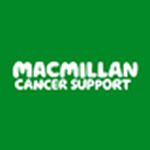Tuesday 06 February 2024
Susan Long, Cancer Support Specialist
You may be worried about head and neck cancer, have been recently diagnosed, or you may be thinking of someone you care about.
This page has information about head and neck cancer symptoms, getting diagnosed, managing treatment and side effects, and how Maggie's can help.
| On this page |
|---|
Head and neck cancer is a cancer that starts in the head or neck, usually in the mouth, throat or sinuses.
It starts when cells in the head or neck grow in an uncontrolled way and form a tumour.
There are several different types of head and neck cancer, including:
These are split into sub-types depending on the cell the cancer starts in, including:
Eye (ocular) cancer, oesophageal (gullet or food pipe) cancer, thyroid cancer and brain tumours are not classed as head and neck cancers, because they are treated differently.
Cancer that starts in the lymph nodes or lymphatic system of the head and neck is called lymphoma. It is a type of blood cancer and is different from head and neck cancer.
The main factors that increase your risk of developing head and neck cancer are smoking tobacco (cigarettes, cigars or pipes) and drinking alcohol.
There are other risk factors for head and neck cancer specifically, including:
Other risk factors are common to all cancers. Find out more about reducing your risk of cancer.
Having risk factors does not necessarily mean you will get head and neck cancer. But it is helpful to be aware of the risks so you can see a doctor if you have any concerns.
You may be offered regular scans or blood tests if you have high-risk genetic factors or a family history of head and neck cancer. Find out more about genetic testing for cancer.
Symptoms of head and neck cancer depend on the type of cancer and if it has spread.
Head and neck cancer often has no early signs. When it does cause symptoms, these may include:
Most people with these symptoms do not have head and neck cancer. But if you do have symptoms, it is important to speak to your doctor.
If it is cancer, it will be easier to treat if it has been detected early.
If you have been having symptoms of head and neck cancer, the first step will usually be to see your GP.
Your GP will ask you to describe your symptoms. You should also tell them about any previous conditions you have had, and if you have a family history of head and neck cancer.
The doctor might:
If you don't have a hospital appointment and your symptoms continue or get worse, you should make another GP appointment.
Find out more about preparing for your GP appointment.
To find the cause of your symptoms, a specialist may arrange further tests, such as:
After these tests and scans, you will be given an appointment to receive your results.
Waiting for appointments, tests and results can be a difficult time, and you might find that talking to someone helps.
Find out more about how Maggie's can help.
The doctor will explain if you have head and neck cancer in your results appointment, and whether you need further tests and scans to see if the cancer has moved outside the head and neck.
It is normal to feel overwhelmed or be in shock after hearing that you have head and neck cancer, and you might have a lot of information to process.
Our cancer support specialists are here to listen, to help you understand what your diagnosis means, and to find the right support for you.
Find your nearest Maggie's to talk to us, or find out more about understanding a cancer diagnosis.
Treatment can be aimed at shrinking a tumour, removing the cancer completely, or controlling the symptoms that it causes. You may have more than one type of treatment.
The treatments most commonly offered for head and neck cancer are:
Your cancer care team will work together to decide which treatment options could be best for you. Your doctor and specialist nurse will then discuss these with you.
You might want to get a second opinion before deciding on a treatment plan.
Making treatment decisions can feel daunting, and you might have lots of concerns or questions. Find out more about how Maggie's can support you.
A head and neck cancer diagnosis can affect your life in many ways. You may be dealing with:
Contact or visit your nearest Maggie's centre and together we will find the right support for you.
You can also explore our cancer support pages for more information.
When treatment ends, it can leave you with mixed feelings of relief and uncertainty.
For many people, head and neck cancer is treated successfully. For some, it comes back or is diagnosed at an advanced stage from the start.
We have more information on finishing treatment and treatment for advanced cancer, as well as courses and workshops to support you and your family beyond treatment.
We offer free expert psychological and practical support tailored to you, whatever stage you're at, and for friends and family too.
Last review: Nov 2024 | Next review: Nov 2027
An overview of head and neck cancer, including the types, symptoms, causes, tests and treatments.

From NHS
Last reviewed: 22 November 2024
Information pages on each of the main types of head and neck cancer, including laryngeal, mouth and oropharyngeal, nasal and paranasal (sinus), nasopharyngeal, oesophageal, salivary gland, throat, tongue, tonsil and ear cancer.

From Cancer Research UK (CRUK)
Last reviewed: 22 November 2024
Information about head and neck cancer, symptoms, causes, diagnosis, treatment and support.

From Macmillan Cancer Support
Last reviewed: 22 November 2024
Find out about the key symptoms of mouth cancer, and factors that increase your risk of developing it.

From Mouth Cancer Foundation
Last reviewed: 22 November 2024
Information about laryngectomy surgery as head and neck cancer treatment.

From Macmillan Cancer Support
Last reviewed: 22 November 2024
Find out about upcoming online support groups for head and neck patients and their care-givers.

From Heads2gether
Last reviewed: 22 November 2024
Information about head and neck cancer, and stories from people who have had mouth, tongue, sinus, nose, throat, neck and jaw cancers.

From HANCUK
Last reviewed: 27 November 2024
To find your nearest Maggie's centre, enter your postcode or town below.
Stay up to date with our news and fundraising by signing up for our newsletter.
Sign up